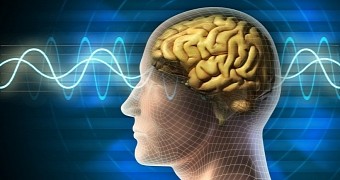According to a new paper in the journal JAMA Neurology, it can happen for otherwise perfectly normal individuals to turn into criminals following their developing Alzheimer's disease or some other neurodegenerative disorder.
Thus, researchers with Sweden's Lund University and the University of California, San Francisco, in the US, say that, should they happen to affect key neural structures in the brain, neurodegenerative disorders can foster criminal behavior.
What's interesting is that such disease do not affect the brain in the same manner when it comes to making people more likely to engage in criminal activities. On the contrary, some disorders more easily turn people into criminals than others.
Neurodegenerative disorders and criminal behavior
As detailed in the journal JAMA Neurology, this investigation boiled down to looking at the medical and criminal records of 2,397 individuals diagnosed with several different types of neurodegenerative disorders.
The diseases examined were Alzheimer's disease, behavioral variant of frontotemporal dementia, i.e. a form of dementia that translates into major personality changes, semantic variant of primary progressive aphasia, i.e. a neurodegenerative disease that causes language decline, and Huntington's.
It was discovered that, of the 2,397 patients included in this study, as many as 204 (8.5%) had a history of criminal behavior that they acquired after being diagnosed with a neurodegenerative disorder, the researchers behind this investigation explain.
Of these people who had a history of criminal record linked to a neurodegenerative condition, 42 were suffering from Alzheimer's, 64 with behavioral variant of frontotemporal dementia, 24 with semantic variant of primary progressive aphasia, and 6 with Huntington's.
When these numbers were compared to the overall number of people diagnosed with each of these disorders included in the study, it was discovered that criminal behavior was most common among behavioral variant of frontotemporal dementia patiens, i.e. 37.4%.
The incidence of criminal behavior documented among semantic variant of primary progressive aphasia, Huntington's and Alzheimer's patients, on the other hand, was one of 20%, 20% and 7.7%, respectively, specialists write in the journal JAMA Neurology.
How neurodegenerative disorders can affect people's behavior
The scientists behind this research explain that neurodegenerative disorders can affect people's behavior and have them become criminals by toying with brain areas in charge of judgment, processing emotions, controlling impulses, preventing violent outburst and self-awareness.
By the looks of it, traffic violations, theft, trespassing and coming on to people are the most common criminal behaviors people diagnosed with one neurodegenerative disorder or another are most likely to engage in, especially if the disease has advanced to a considerable extent.
In light of these findings, specialists urge that “Individuals who care for middle-aged and elderly patients need to be vigilant in the diagnosis of degenerative conditions when behavior begins to deviate from the patient’s norm and work hard to protect these individuals when they end up in legal settings.”

 14 DAY TRIAL //
14 DAY TRIAL //